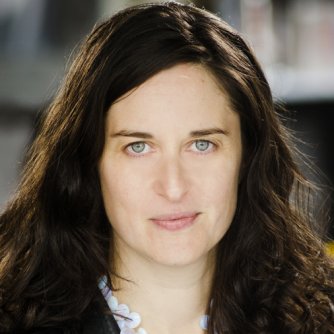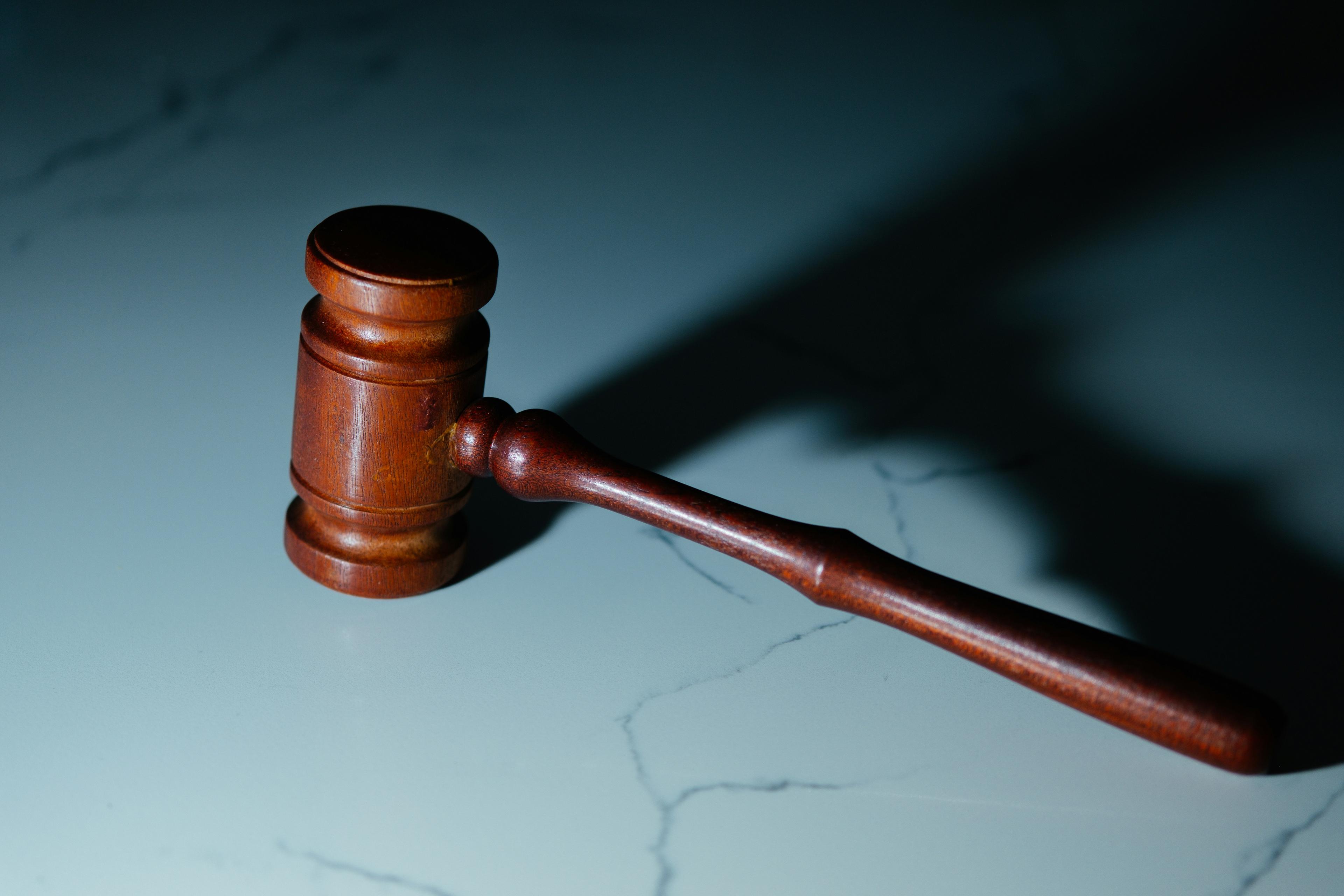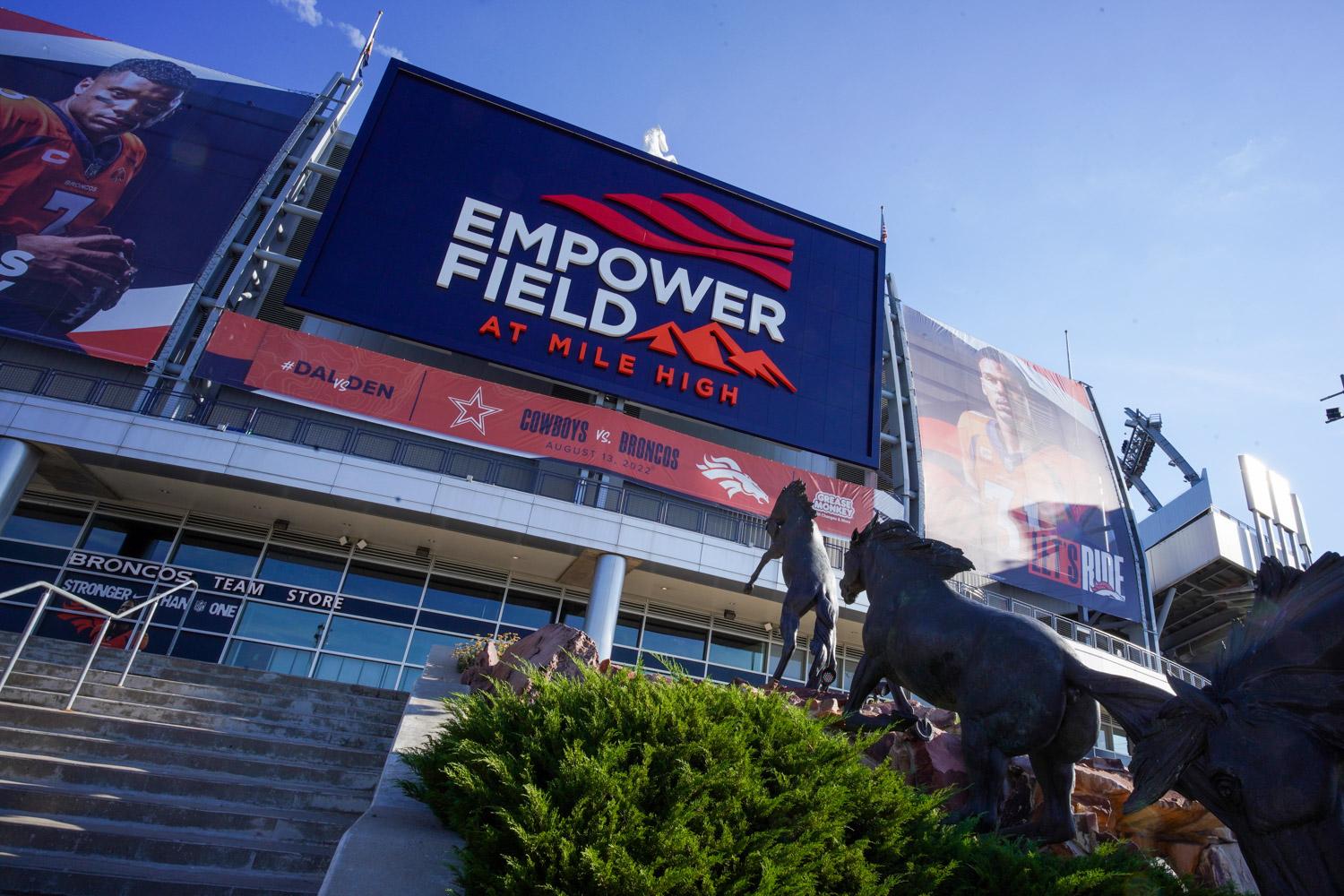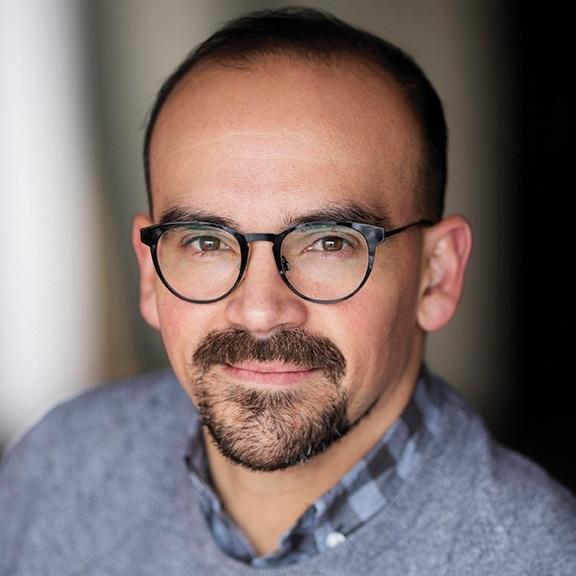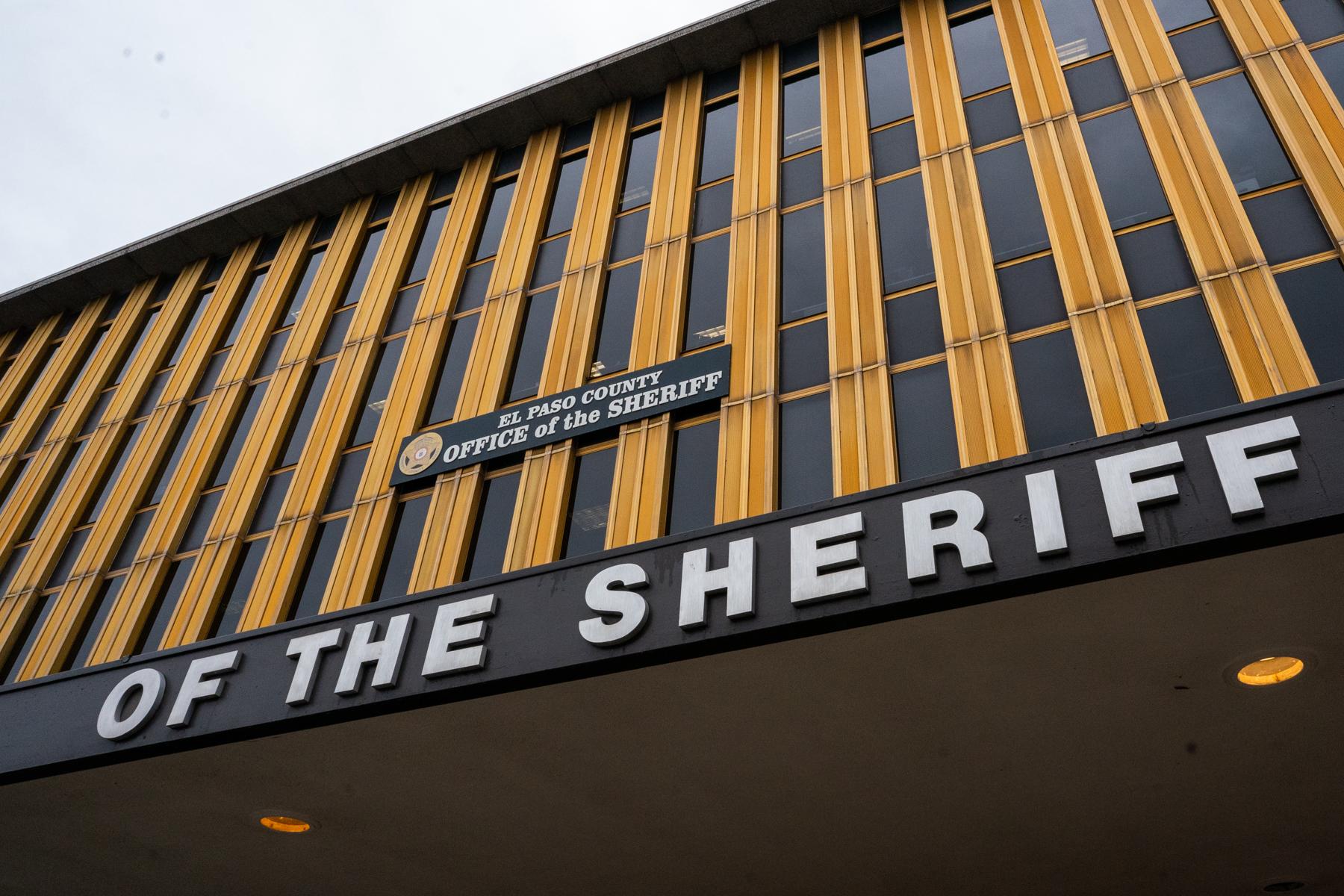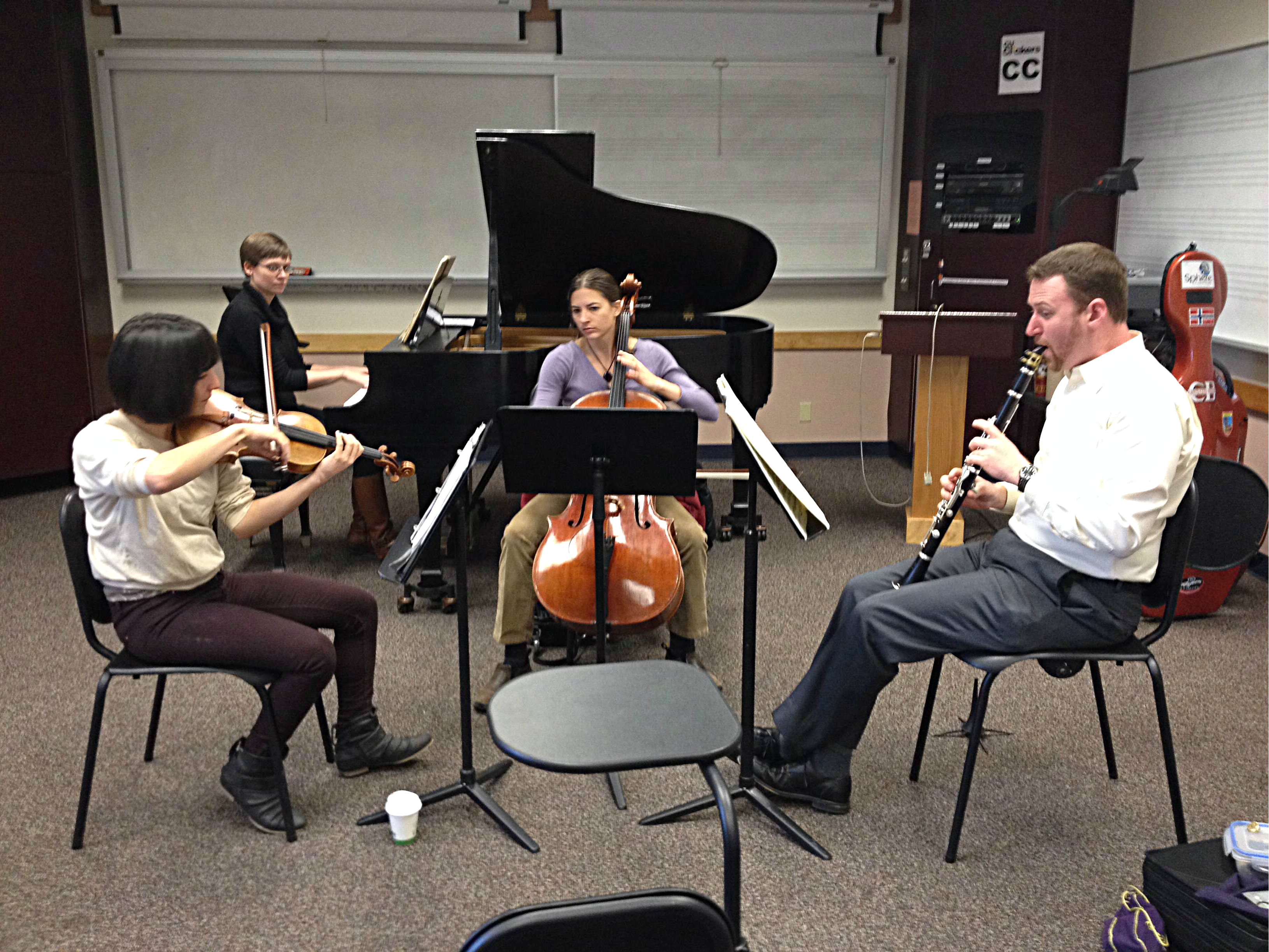

The project invites comparisons to the classical programming at Le Poisson Rouge in New York. But the Denver series so far has a different vibe to that of the New York venue. It’s more intimate, and judging by the repertoire plans for the coming months, looks to be predominantly focused on 20th century music.
Last month’s inaugural concert featured both up-and-coming local performers as well as seasoned pros from institutions like the Colorado Symphony.
The adventurous programming included Igor Stravinsky’s "Fanfare for Two Trumpets" (1964) a boisterous little piece which sounds like two brothers squabbling and making up in the space of 60 seconds; a galumphing song cycle by Rodger Vaughn for soprano voice and tuba; and Jean Francaix’s jaunty "Quartet for English Horn and Strings" (1971).
Also on the program were short experimental works for solo clarinet, solo bassoon and solo double bass by, respectively, Isang Yun, William Osborne and Tom Johnson.
“I defer to what the musicians really want to play and it is usually something modern that they don't get to play anywhere else,” James Bailey, the series organizer, says. “This is more interesting to them.”
The only truly “Classical” item on this classical music series program was a performance of the 3rd movement of Beethoven’s Piano sonata No 17 in C minor. But even this standard of the repertoire came with a twist – the work was fastidiously performed by Ashia Ajani, a 16-year-old student at Denver’s East High School.
Bailey aims to include a performance by a young musician in many of the Dazzle series concerts. The impresario sources his student performers through his network. “I already have way more names than I can use!” Bailey says.
Although the intimate, 85-seat Dazzle space isn’t a traditional venue for classical music -- you can eat curry or cake while watching the show -- it behaves like one in some ways. For one thing, patrons are asked to silence their cell phones.
“We are a listening room. There is a strict no talking policy,” says Kevin Lee, Dazzle’s music director.
Unlike most cavernous concert halls, Dazzle’s small size makes possible the experimental attitude.
“We don't have near the pressure of, say, a large symphony hall to sell as many tickets,” Lee says. “It is because of this that we are able to do this series with the intent of offering classical musicians a place to present newer or lesser known works in addition to more widely known repertoire as they see fit.”
Colorado audiences are no strangers to hearing classical music beyond concert halls and churches.
The Colorado Symphony performs at Red Rocks; Opera on Tap showcases opera arias in bars (the organization will be featured as part of the Dazzle series on April 8); chamber groups can occasionally be found at the Denver Art Museum; and the Sounds of Lyons classical music festival has hosted concerts in spots as diverse as the banks of the St. Vrain river and the Wildflower Pavilion, a space usually occupied by bluegrass events.
Musicians involved with the new series at Dazzle are excited about its possibilities.
“We hear time and time again about the death of classical music. But in my experience the vast majority of people in their twenties, thirties and forties love classical music,” Beth Rosbach, a freelance cellist in Denver and the director of the Sphere Ensemble, an alternative ensemble made up of classically trained string musicians, says. “The problem is that they are put off by the presentation. The Dazzle series takes music out of the concert hall and puts it into a more approachable venue, showing people that classical music is a completely viable art form.”
Rosbach is part of the ensemble that will be performing in the French composer Olivier Messiaen’s iconic "Quartet for the End of Time" at the next iteration of the Dazzle Classical series, tomorrow night.
Here’s an overview of the lineup for the coming Dazzle classical series events:
- Tuesday, Jan. 7: A program of French quartets featuring Claude Debussy’s string quartet, two works for saxophone quartet by Max Dubois and Eugene Bozza, and Olivier Messiaen’s “Quartet for the End of Time.” Performers include the Denver School of the Arts Student Quartet and the Lamont Saxophone Quartet.
- Tuesday, Feb. 4: Piano works by Eric Satie performed by Andrew Lee.
- Tuesday, March 4: “Pierrot Lunaire” by Arnold Scheonberg performed by the Playground Ensemble.
- Tuesday, April 8: Arias of “sex, betrayal and revenge” performed by artists from the Denver chapter of Opera On Tap. Opera on Tap is a national network of classically trained singers who perform works from the operatic canon in bars.
- Wednesday, May 7: A world premiere by Colorado Symphony percussionist William Hill, “Hout” by Louis Andriessen and a piece by Vineet Shende – “Throw Down or Shut Up” – which will be performed by the University of Colorado Faculty New Music Ensemble.
